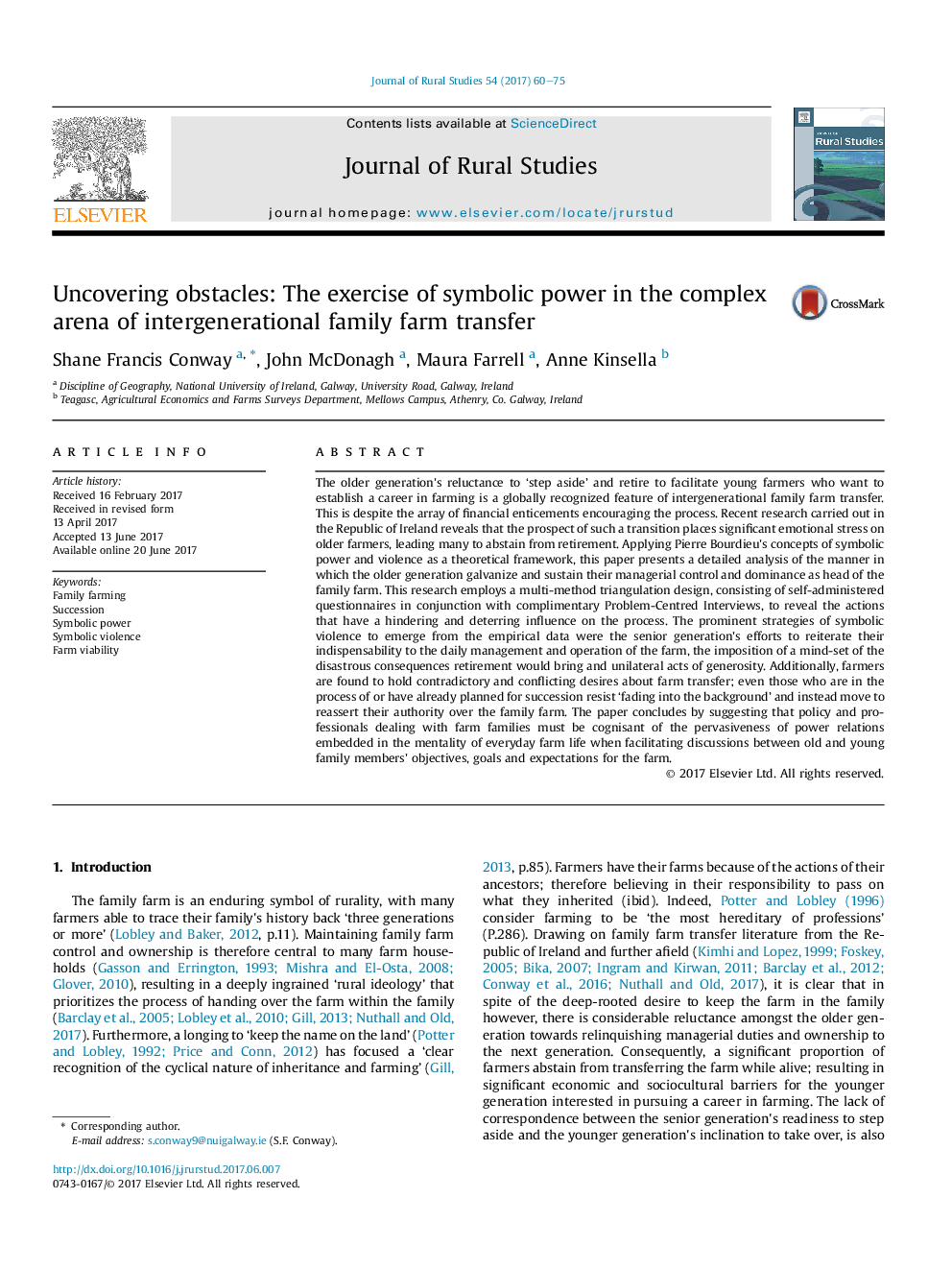| Article ID | Journal | Published Year | Pages | File Type |
|---|---|---|---|---|
| 6460015 | Journal of Rural Studies | 2017 | 16 Pages |
â¢Farmers wish to remain recognised as an active and productive farmer in society in old age.â¢The senior generation are reluctant to engage in farm transfer and retire.â¢An unwillingness to relinquish managerial duties can undercut the younger generation's ascendancy.â¢Asymmetric hierarchal relations within farm households are sustained through strategies and practices of symbolic violence.â¢Future policies must consider strategies in which symbolic power can be constructively exercised by the older generation.
The older generation's reluctance to 'step aside' and retire to facilitate young farmers who want to establish a career in farming is a globally recognized feature of intergenerational family farm transfer. This is despite the array of financial enticements encouraging the process. Recent research carried out in the Republic of Ireland reveals that the prospect of such a transition places significant emotional stress on older farmers, leading many to abstain from retirement. Applying Pierre Bourdieu's concepts of symbolic power and violence as a theoretical framework, this paper presents a detailed analysis of the manner in which the older generation galvanize and sustain their managerial control and dominance as head of the family farm. This research employs a multi-method triangulation design, consisting of self-administered questionnaires in conjunction with complimentary Problem-Centred Interviews, to reveal the actions that have a hindering and deterring influence on the process. The prominent strategies of symbolic violence to emerge from the empirical data were the senior generation's efforts to reiterate their indispensability to the daily management and operation of the farm, the imposition of a mind-set of the disastrous consequences retirement would bring and unilateral acts of generosity. Additionally, farmers are found to hold contradictory and conflicting desires about farm transfer; even those who are in the process of or have already planned for succession resist 'fading into the background' and instead move to reassert their authority over the family farm. The paper concludes by suggesting that policy and professionals dealing with farm families must be cognisant of the pervasiveness of power relations embedded in the mentality of everyday farm life when facilitating discussions between old and young family members' objectives, goals and expectations for the farm.
